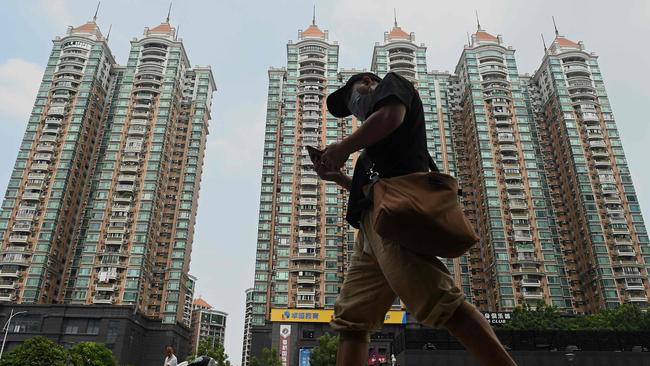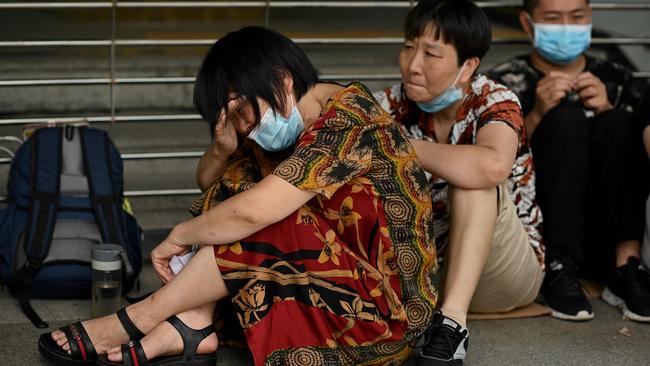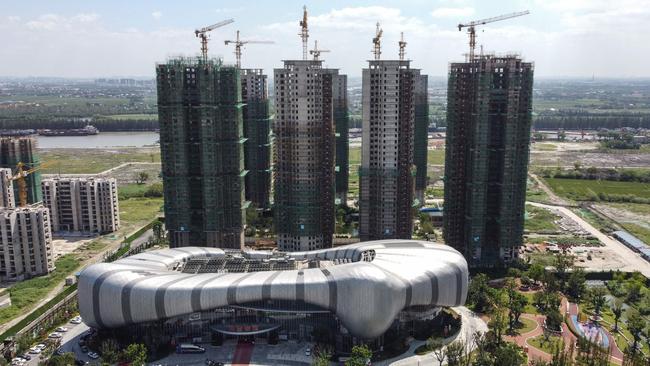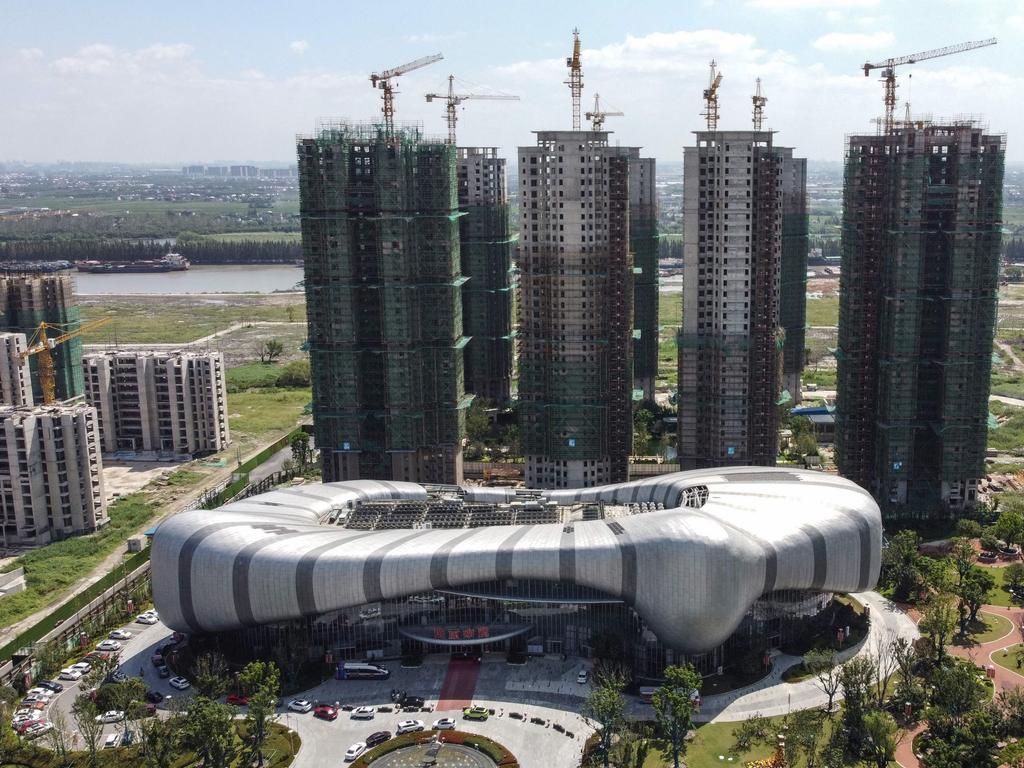
The Chinese building industry, which has played such a big part in booming commodity markets, is in deep trouble at the same time as the uncertainty in the US.
Almost 30 per cent of Chinese GDP is in the real estate sector, so a big fall in the sector would send the Middle Kingdom into recession with dramatic global repercussions.
In China the massive Evergrande operation is effectively broke. The Chinese government may save it but is more likely to concentrate on saving the hundreds of thousands of Chinese who have bought apartments from Evergrande “off the plan”.
In Australia we have seen many “off the plan” projects collapse but nothing on this scale.
Evergrande owns more than 1300 real estate projects in over 280 cities in China.
Banks have stopped lending Evergrande money and shattered suppliers are shutting the doors so Evergrande can’t complete the projects. Those who bought unfinished apartments are protesting while suppliers, which are spread throughout China, can see their solvency at risk if they are not paid.
And Evergrande can’t pay. Evergrande has $US89 billion of direct borrowing but total liabilities of more than $US300bn which is scattered around a myriad of suppliers. Most of the lenders are Chinese banks and other local lenders but there is an unknown number international banks and investors who were seeking high yields. Not surprisingly Evergrande bonds are selling at token levels.
Given the size and impact many believe that Evergrande is too big to be allowed to fail but the majority opinion is that the Chinese government will see this is a wonderful opportunity to finance those seen as favourable to the Communist Party to complete the projects.
Accordingly, if China embraces that strategy the ordinary Chinese “off the plan” buyers will be protected and selected banks and suppliers will be helped.
In that process the Chinese Communist Party will take control of the highly speculative-driven real estate business in the same way it now controls the hi-tech companies.

Let’s first look at the disaster from the point of view of the Chinese steel mills which buy Australian iron ore. A month or so ago they were purchasing our iron ore above $US200 a tonne. They have been selling steel to dealers and others involved in the building industry at prices based on those peak iron ore price levels. Evergrande has now sent the steel supply chain into a state of great nervousness - who is going to go broke?
The speculators watching the iron ore price fall drove it even lower by shorting. There are therefore a lot of Chinese steel mills with big problems and many have cut back production. But the crisis goes further than iron ore.
The property sector accounts for about 20 per cent of China’s copper consumption and 10 per cent of its nickel demand. Australian iron ore producers and other parts of our mining sector are clearly going to be impacted by the fallout from Evergrande’s problems for some time.
To the delight of President Xi Jinping the Australian economy will now suffer much more severely from the Chinese trade clamps than has so far been the case. Our share market and dollar reflects this dramatic change.
It’s also important to understand of what is happening on the ground in China.
President Xi and the party have been concerned for some time at the massive speculation in Chinese property which was making home ownership unaffordable for the masses - exactly what is happening in Australia. Indeed many of Evergrande’s 1.6 million apartments were sold to speculators who had jumped on the property price spiral.
China began clamping down on lending but given that vast areas of the Chinese building industry were based on high leverage it was perhaps inevitable that a catastrophe like Evergrande would be triggered.
While Evergrande made money for speculators in years gone by it also borrowed vast sums to provide housing for the masses in China. That’s why its dire situation is causing so much alarm in the Middle Kingdom.

Using material from The Wall Street Journal and The New York Times, let me describe some of what is happening on the ground.
Earlier this year Evergrande told its employees that if they wanted to keep their bonuses they would have to give Evergrande a short-term loan.
Some workers tapped their friends and family for money to lend to the company. Others borrowed from the bank. Then, this month, Evergrande suddenly stopped paying back the loans.
Now, hundreds of employees have joined panicked home buyers in demanding their money back from Evergrande, gathering outside the company’s offices across China to protest.
Meanwhile construction of Evergrande’s projects in many of the 280 cities has stopped.
Evergrande began paying bills to contractors and suppliers with unfinished apartments. One supplier exchanged $US34m that he was owed for three unfinished properties. The supplier is now trying to sell them. He has little chance.
Evergrande has asked local governments to take over homeowners’ funds held in escrow accounts so they can’t be seized in legal disputes with creditors.
Whether Evergrande is saved or the government introduces a selectively targeted rescue, the crisis will form part of this massive change in China where the great drivers of the 20-year boom - high tech companies, large enterprises to advance Chinese skills in education and finally the massive building boom - have been dismantled. The whole exercise has taken place in the 2021 calendar year.
Australia and the rest of the world will initially look at what is taking place in China in terms of export markets but very soon we will need to determine what impact this will have on our supply chains.
The world has become very dependent on Chinese component parts and finished goods. The China we have been dealing with has disappeared to be replaced with a very different nation.





The collapse of the iron ore price and the big fall now taking place in global share markets are part of the same story.